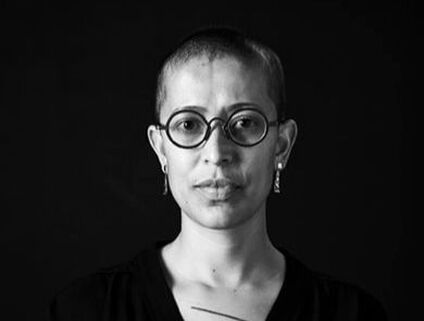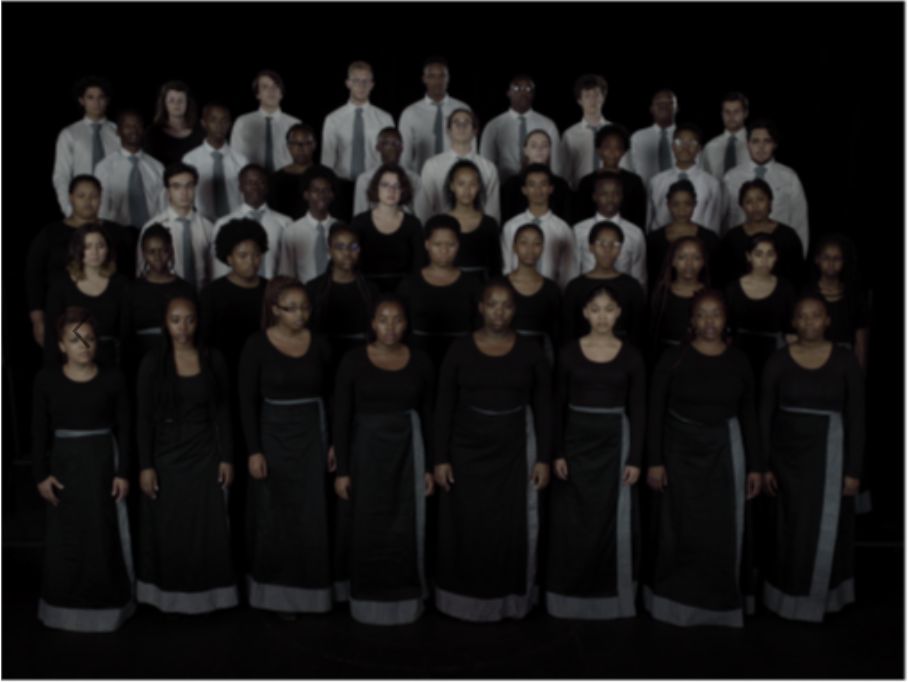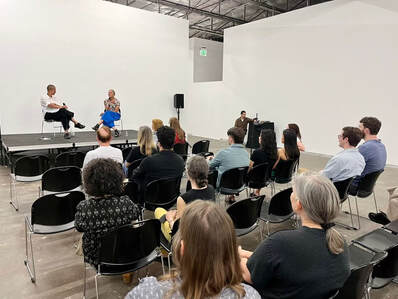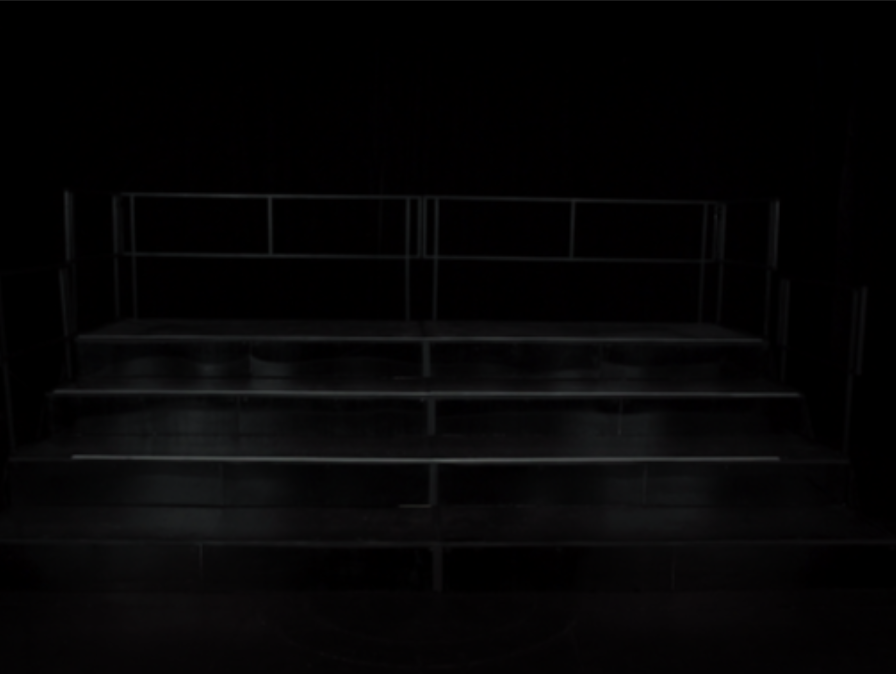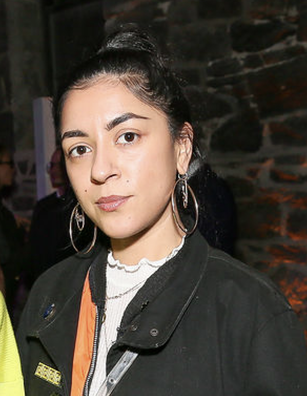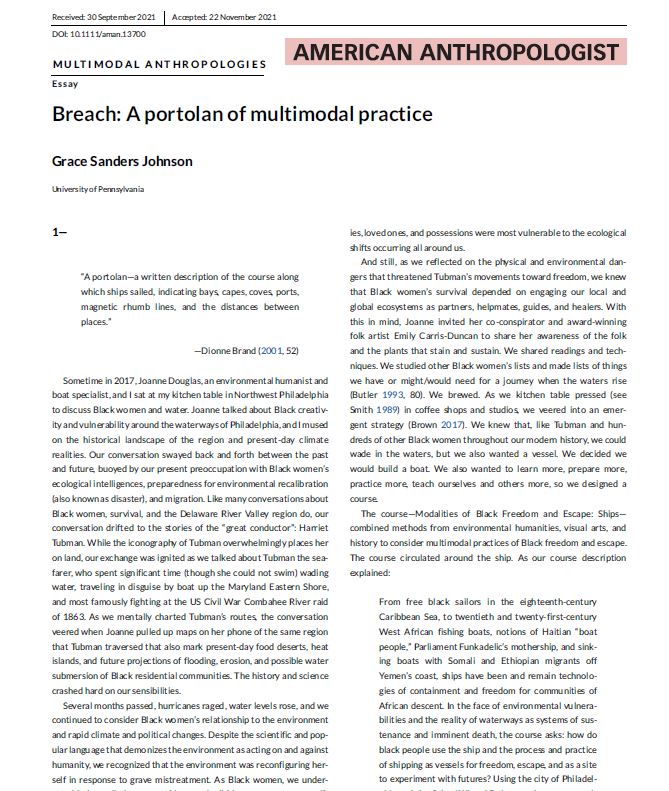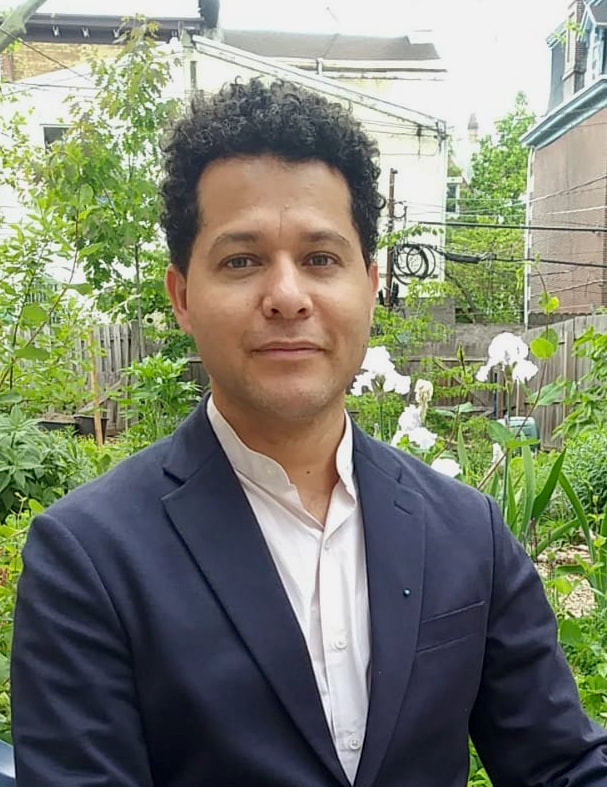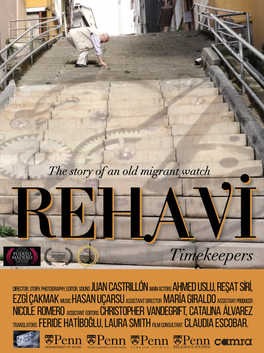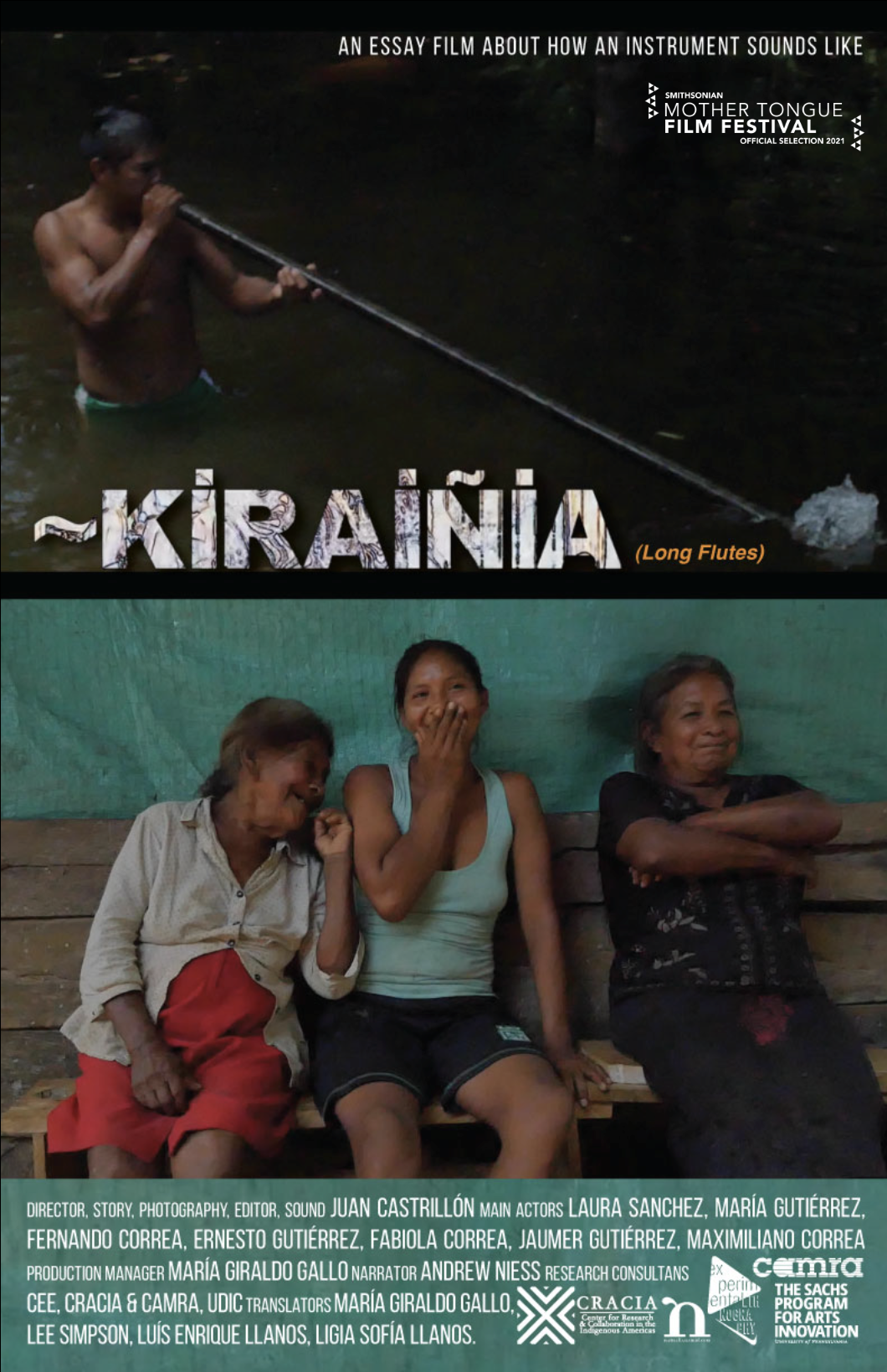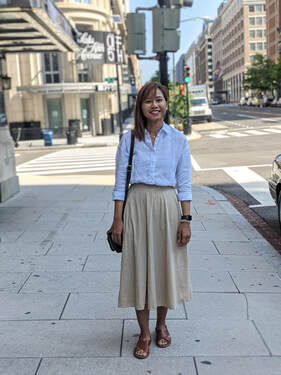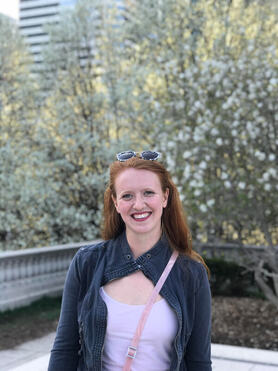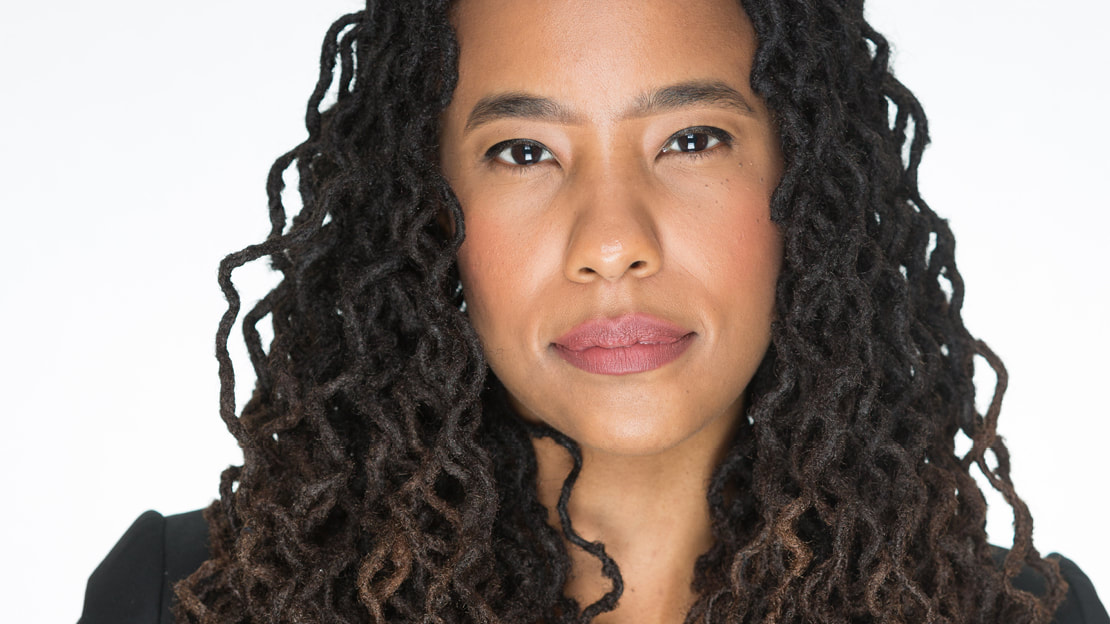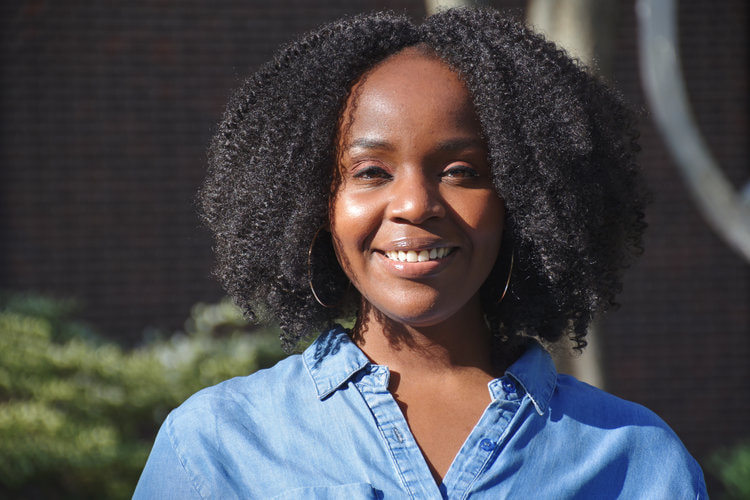CEE | Center for Experimental Ethnography
Menu
CONVERSATIONS
A blog of the Center for Experimental Ethnography
|
Gabrielle Goliath, a South African artist and a familiar collaborator with the Center for Experimental Ethnography, opened her first U.S exhibition at Dallas Contemporary in September. The multimedia installation is curated by Emily Edwards, and carries forward Goliath's larger practice that centers around "the life work of mourning". At Dallas Contemporary, this takes the form of an immersive installation of "Chorus", a 23-minute audio-visual piece honoring victims of gender-based violence in South Africa and featuring a performance by The University of Cape Town choir. Participants are encouraged to linger in the exhibition space, where two videos are projected onto large, free-standing blocks positioned in relation to each other.
In its first showing, the work recalled the names of 463 victims of an epidemic of violence against women, children and LGBTIQ people in South Africa. on a commemorative roll within the exhibition space, covering the period of August 2019 to August 2021, now updated through August 2022 to bring the list to 680 named individuals for its Dallas presentation. This exhibit remembers these individuals, creating “not the spectacle of violence through which black, brown, femme, and queer bodies are routinely fixed, but rather a space for community, for relational encounter, and – hopefully – for a transformative work of mourning"---Gabrielle Goliath In November 2020, Gabrielle Goliath screened her piece "Elegy" at the Center for Experimental Ethnography as part of a Third Thursday panel, "Memorializing Otherwise," with Ken Lum and Deborah Anzinger.
0 Comments
Juan Castrillón is the Gilbert Seldes Multimodal Postdoctoral Fellow at the Annenberg School for Communications at the University of Pennsylvania. His research focuses on analytics of listening, world-building practices, and contemporary healing arts in Anatolia, Turkey; the Northwest Amazon in Colombia; and Philadelphia. He creates experimental ethnography as a performative response to contemporary debates in the academy. He uses filmmaking to develop a cinematic language that is respectful of Indigenous perspectives but also open to contemporary debates on gender and critical race theory. Castrillón’s work has been published in academic journals, and exhibited at film festivals, art galleries, and academic conferences around the world. He is board member of the Society for the Anthropology in Lowland South America, and member of the Center for Research and Collaboration in the Indigenous Americas, and the Substantial Motion Research Network. He received his Ph.D. in Ethnomusicology with a Graduate Certificate in Experimental Ethnography from the University of Pennsylvania. Find more information on the films' virtual premiere HERE
Hakimah Abdul-Fattah is a William Fontaine Fellow pursuing a Ph.D. in Anthropology. Hakimah's project for Portrait as/in Ethnography built on three previous portraits made during the semester exploring kinship, archives, and citizenship, as it pertains to her maternal relatives and displacement in the United States and Antigua. Her still and time-based portraits featured the only remaining images of her maternal grandmother and grandfather who both came to Princeton, New Jersey in the second or third resettlement as a result of migration from the American South and South of the American border. Neither of them lived long enough to see a second wave of Black migration out of Princeton due to gentrification, strengthened in part by the university. By thinking through a limited visual family archive, which mimics in many ways the silences in larger state and colonial records of Black communities, Hakimah became interested in thinking beyond kinship structures to human and nonhuman connections with place/space, built community, and past and future generations. While her maternal grandparents ground this research she believes the final portrait project was as much of a portrait of a place (or places; Princeton, NJ, Clewiston, FL, All Saints, Antigua, etc..) than particular individuals. This summer Nursyazwani and Rebecca investigated and participated in multiple kinds of creative, nourishing, reparative practices of placemaking at the Mercy street Growing Home garden in South Philadelphia. This project followed a period of transformation in the social life of the Mercy street garden which has witnessed shifting focus (both in terms of funding and collective efforts) from preventing displacement to placemaking and integration. They ask: how do everyday relations at the Mercy street garden offer a site to (1) cultivate belonging and (2) repair fraught ties / relations based on exclusionary practices in this multicultural, multilingual urban space?
The first 6 weeks of creating things together were focused on trellises, and the process of designing, creating, and adapting trellises using a mix of salvaged objects and locally sourced salvaged wood. Drawing on Rebecca's passion for woodworking and making functional objects from salvaged materials we were able to form a collaboration with expert woodworkers from NextFab in South Philly who joined in meetings with gardeners on zoom and in-person to help solidify the plan for the trellises so that they could support the very heavy vined plants that Karen gardeners traditionally grow such long squash, bottle gourd, bitter melon, and Karen. The practice of conceptualizing, designing, crafting, and installing trellises together elicited different modes of visualizing and describing structural elements across multiple registers of English, Karen, and Thai. As the garden began to flourish, they participated in traditional Karen agricultural practices, learning about the many different fruits and vegetables gardeners were cultivating based on seeds they had saved, or that had been passed around through networks of Karen refugees across the country. During the practices of daily tending, the Karen collaborators Nursyazwani and Rebecca worked with recounted their embodied memories of tending to these plants in different places throughout their lifetimes. Towards the end of the summer, they began conceptualizing different art projects that would beautify the space while also providing information about the rich variety of plant life that folks were cultivating. They had our first sign painting day in August, with more upcoming. This summer, with the help of the CEE Summer Research Grant, OreOluwa Badaki ( Pictured in the first image) ran the first round of workshops for the Food Justice Writing Group: an intergenerational community of writers, creatives, storytellers, and media makers invested in food and environmental justice. OreOluwa and The Food Justice Writing Group began researching and writing their first project: a speculative fiction screenplay that centers the history and relevance of okra in Black food traditions and histories. The script is being co-written by OreOluwa Badaki and Black youth (age 14-18) who are working on food justice and sovereignty in their communities. The workshops center the people, places, plants, and politics relevant to Black foodways. They center these elements as they learn the art of script and screenwriting to tell stories that build on food, farming, and literacy traditions spread throughout the African Diaspora. This was an opportunity for young people to activate their creativity and criticality as they help to archive, as well as re-imagine, the stories and experiences important to Black foodways. In addition, many of the young people involved in the project have never had the opportunity to look closely at what a career in screen or playwriting, or any sort of creative writing, might look like. This project also serves as a way for them to explore new career paths in food and environmental justice. OreOluwa Badaki I wrote about this project for Environmental Health News that can be found HERE...
Jasmine Johnson believes in the integration of research and practice and is interested in the various ways her own movement practices “show up” in her work. Her research examines the politics of Black movement, which for her includes not only dance but also phenomena like diasporic travel and gentrification. Interdisciplinary in nature, her scholarship and teaching are situated at the intersection of diaspora theory, dance and performance studies, ethnography, and black feminism. Her first book manuscript, Rhythm Nation: West African Dance and the Politics of Diaspora, is under contract with Oxford University Press, and her second book project is a cultural history of black American dance. In conversation with Grace Ndicu, Jasmine talked about the recently inaugurated Black Feminist Lab. She described the Lab as having organically emerged through casual conversations with Aimee Cox, a former CEE Fellow who teaches at Yale University. Jasmine had met Aimee during a Mellon-sponsored summer institute at Northwestern, and they had stayed in touch since that time. Their conversations touched on the movement practices in which they have both been engaged, from African and Caribbean dance to experimental dance, yoga, barre as well as Pilates. As the conversations evolved, they begun to discuss the role of movement in their writing and scholarly practice, and what moving could do to mitigate the disruptions that were taking place. Because these discussions took place during this difficult pandemic time, one that has been especially trying for Black people contending not only with a pandemic that was disproportionately affecting them, but also with America’s perpetual reawakening to the injustices that face African-Americans, they took on a heightened salience. Jasmine and Aimee also understood that other black women were experiencing the disembodiments they were feeling, perpetuated by an increase in virtual communication, and especially by endless zoom meetings. They imagined that others would also be interested in participating in a conversation about embodiment, so they began to ruminate on the role of this embodiment in the rising conversation about Black bodies, and on what they could share that would be useful. What was birthed from this desire to share was the creation of a space in which Jasmine and Aimee would share each of their movement practices with an emphasis on embodiment and experience, without preaching or performing. They enlisted Savannah Shange, an anthropologist based at the University of California-Santa Cruz with whom Jasmine had connected in the Bay Area, to serve as an interlocutor, and the Black Feminist Lab had its first public offering on March 19th. Forty participants took part in a workshop that was organized in relation to three concepts: CLEAR (a breathing exercise led by Savannah); BUILD (a barre and Pilates practice led by Jasmine); and RELEASE (an experimental invitation to move led by Aimee). After the exercises, Savannah threaded these three concepts together, and then opened space for participants to share how they felt. The goal was not necessarily for participants to leave with a new skill, but to explore Black women’s experiences with their bodies in motion. Jasmine’s current research focuses on the choreographic practices of contemporary black choreographers such as Solange Knowles, Camille A. Brown, and Jennifer Herge, as well as scholar-choreographer Aimee Cox. When looking at these choreographers’ work, she is especially interested in exploring the extraordinarily diverse representations of black womanhood that they put forward. Jasmine was drawn to barre and Pilates classes because she had noticed the dearth of Black women in these classes, and wanted to change that. She has also been exploring the practice of full body listening, as developed by Aimee Cox, a practice that she says helps develop clarity. “When using my body for physical practice,” she said, “it connects my work both in method and approach as well as practice.” Through her scholarly work, movement practice, movement instruction and her dedication to the liberation found in Black Feminist practice, Jasmine personifies the practice of full body listening. Jasmine’s background in Dance Studies informs her interrogation of Black movement generally, from diasporic relocations to the Great Migration, to the chorographic practices of Black artist. For her, attention to movement in these broad terms helps us to understand the diversity of Black identities, even “where there is very little verbal utterance.” Movement, in this way, becomes an archive of experience, and the body both inhabits and registers this archive. It is this sense of movement that underlies the Black Feminist Lab, a space in which the intention of being and moving together in active presence should be guided by curiosity, rather than on a determined point of arrival or resolution. The trio wants participants to be open to what movement asks instead of what it answers. The Black Feminist Lab is led by: Aimee Meredith Cox, a cultural anthropologist, writer, and movement artist currently teaching in the Anthropology and African American Studies Departments at Yale University. Her first book, Shapeshifters: Black Girls and the Choreography of Citizenship (Duke 2015) has won several awards. Jasmine Elizabeth Johnson, an Assistant Professor of Africana Studies at the University of Pennsylvania who has also been a Ford Foundation Diversity Pre- and Post-Doctoral Fellow. Jasmine earned her Ph.D. in African Diaspora Studies at UC Berkeley, and has been a Scholar-in-Residence at the Schomburg Center for Research in Black Culture, a Newhouse Center for the Humanities Fellow at Wellesley College, and a Postdoctoral Fellow in African American Studies at Northwestern University. In 2016, Johnson was awarded the Michael L. Walzer '56 Award from Brandeis University for combining "superlative scholarship with inspired teaching." Jasmine is also a professional dancer and has performed internationally. Savannah Shange is an urban anthropologist who works at the intersections of race, place, sexuality, and the state. She is Assistant Professor of Anthropology at the University of California, Santa Cruz with research interests in circulated and lived forms of blackness, ethnographic ethics, Afro-pessimism, and queer of color critique. Savannah has been a Ford Foundation Dissertation Fellow, a Jack Kent Cooke Foundation Fellow, and a Point Scholar. We are very excited about the Black Feminist Lab as well as Jasmine's other projects! Dr. Krystal Strong is an assistant professor in the Literacy, Culture, and International Education Division. Her research and teaching focus on student and community activism, the cultural and political power of youth, new media and popular culture, and the role of education as a site of political struggle with a geographic focus on Africa and the African Diaspora. She teaches courses in the Education, Culture, and Society and International Educational Development programs that focus on global youth cultures, ethnography and qualitative research methods, decolonizing education, and grassroots community activism. As a scholar and active organizer in the city of Philadelphia, Dr. Strong brings a commitment to supporting local communities, and to bringing the lessons of activism to bear on her scholarship and pedagogy. We recently spoke to Krystal about some of her current projects.
Krystal Strong is a native Philadelphian who grew up in the Francisville section of Fairmount, studied in the West coast and lived in various part of the world. When we spoke, she described the beauty of coming home as an academic, and about how being at Penn has opened up and required that she create space for all the work that she does in her community. Having returned to Philadelphia, she was disoriented by the intense gentrification she encountered, and she felt it was critical to do the memory work that was needed to remember what was being erased by these processes, both for herself and her famiy, and for Black Philadelphians more generally. One of the catalysts that brought her to develop the Remember Black Philadelphia Project was the trip she took with her father to the location of his alma mater, which has now been transformed into luxury apartments. Her father played in the West Philadelphia high school band, and her grandmother owned a beauty salon around the corner from West Philadelphia High. She recalled how the community had pressed for the school to be renovated, but despite strong and organized alumni opposition, the old building (which had opened in 1912 as West Philadelphia’s first secondary school) was repurposed by a Brooklyn-based development company. Students were relocated to a new building at 49th and Chestnut in 2011, and the community lost a landmark. These family memories were further activated in 2016, when Strong attended a MOVE event. She remembered walking up to a table that displayed 35-year old newspapers documenting the struggles of MOVE and Mumia Abu-Jamal. She was struck by the love and care that went into maintaining these newspapers, which had been saved by a community elder in a repurposed bedding set. This act of archiving demonstrated to her that important memory work was being taken on by the community, and the seeds of a new project were born. Krystal began collaborating with Jennifer Garcon, a digital librarian at the Price Lab to assist Philadelphia community members in digitizing and preserving their artifacts, and in recording their oral histories. The resources of the Remember Black Philadelphia Project have also been extended to the MOVE community to create a counter-archive, for which she recently received a two-year grant from the Mellon Foundation that will fund the collection of MOVE histories, their political work and their fight against state targeting. The counter-archive will culminate in a pop up multimodal exhibit that will assemble the oral histories and artifacts through immersive technologies to create a layered understanding of the role of MOVE in the Black freedom struggle. Keep an eye out for the Remember Black Philadelphia Project website coming soon. We are very excited about Krystal’s projects! 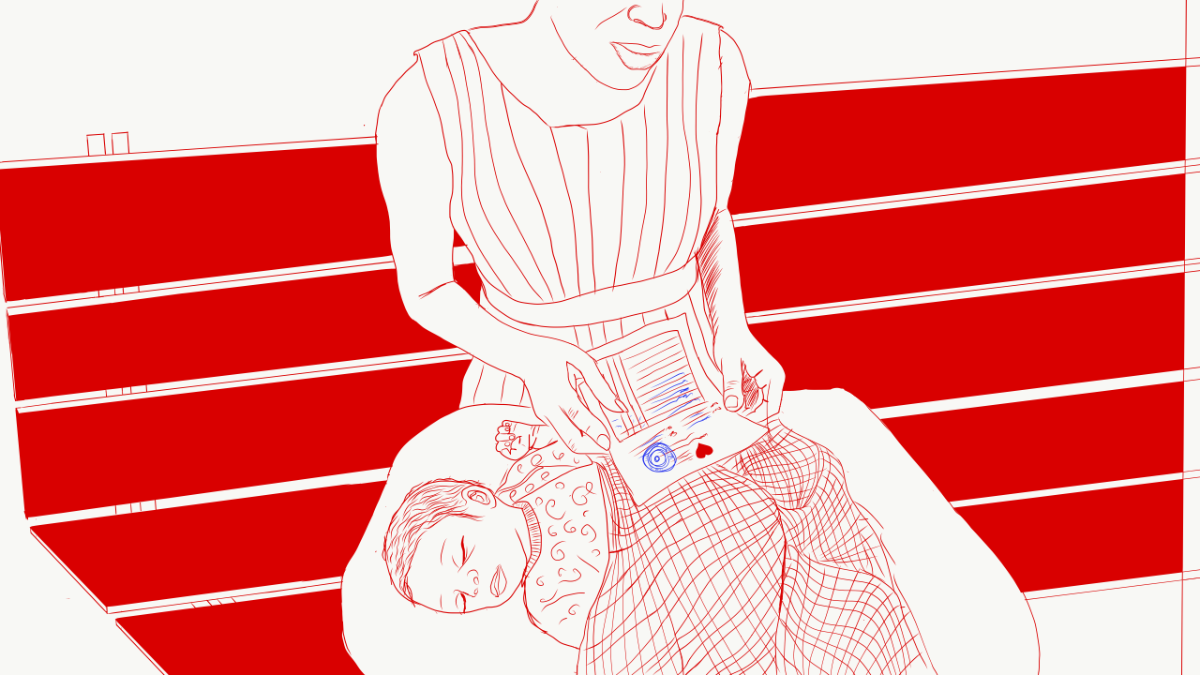 Creatively altered and anonymized rotoscope of an original photo of Naomi by China Tolliver (Rotoscope by A Jordan) Creatively altered and anonymized rotoscope of an original photo of Naomi by China Tolliver (Rotoscope by A Jordan)
|
|||||||||||||
Contact Us // 438 PENN MUSEUm // [email protected]
© 2018 The Trustees of the University of Pennsylvania
